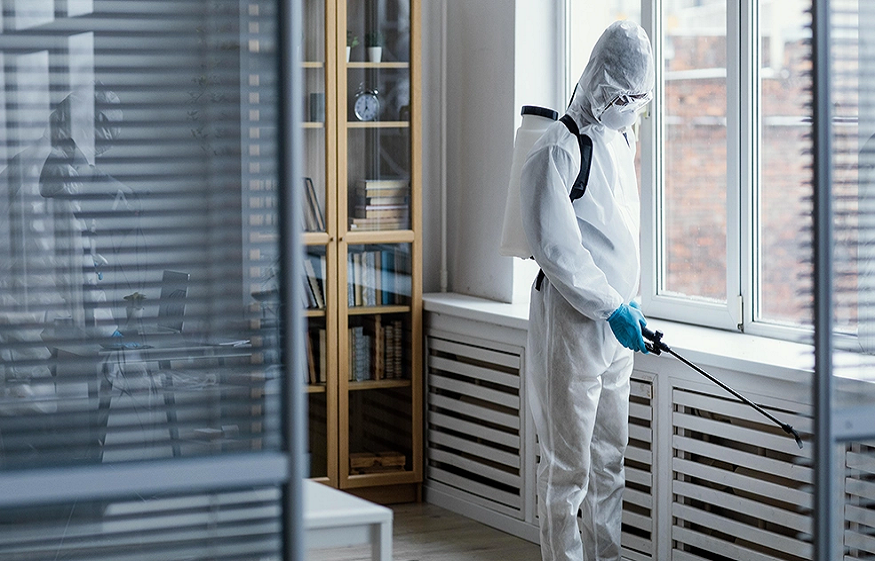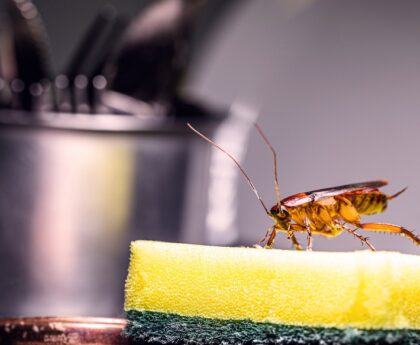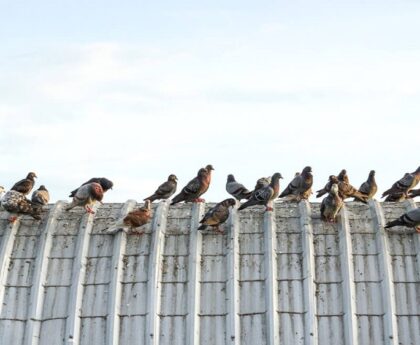Townhomes and duplexes in Indianapolis pose specific pest control challenges. These multi-unit structures, common all over neighborhoods like Broad Ripple, Fountain Square, and Mass Ave, are ideal for pests. The adjoining walls, common access points, and interconnected areas increase the challenge of pest control compared to conventional single-family houses.
Indianapolis ants come in waves, as most are unaware that what appears to be a localized issue on a unit gets spread to others by standard plumbing, electrical, and wall cavities. Even the humid summers and erratic seasonal temperatures of the city complicate things, with pests pursuing habitat and food every season of the calendar year. Effective pest solutions from professional pest control become vital for complete protection in these integrated living spaces.
Common Pests Found in Indianapolis Townhomes and Duplexes
1.German Cockroaches
These pesky little insects thrive in the heat and moisture of where units share a kitchen and bathroom wall.
2. Pavement Ants
Prevalent in Indianapolis concrete foundations, they move through cracks and colonize beneath townhome patios.
3. House Mice
Small enough to slip through quarter-inch openings in common walls, allowing it to tissue-paper its way into unit-to-unit transit.
4. Silverfish
Flourish in the humidity of the typical basement levels and crawl spaces found in Indianapolis multi-units.
5. Boxelder Bugs
Local pest control numbers say the bugs invade 40 % of Indianapolis townhomes every fall as they look for places to spend the winter.
6. Centipedes
They thrive in the moisture found in shared basements and other utility areas that are typical of duplex-type structures.
7. Carpenter Ants
The wooden structures connecting units are the primary target, and since Indianapolis sees more than 180 days of precipitation each year, moisture conditions are ripe.
Why Pests Love Multi-Unit Structures
Not only do multi-unit structures provide several food sources for pests, but they also provide ample hiding spots and travel routes because shared walls become highways for insects and rodents to navigate from unit to unit without detection.
Since the plumbing and electrical systems are intertwined, pests find the perfect combination of warmth and moisture that they crave. If one neighbor does not wash their plates or put their food away correctly, it impacts everyone in the building. The shared entryways and common basements also provide multiple entry points for pests to enter the building.
What Makes Pest Control in These Homes Tricky
Unlike single-family homes, townhomes and even duplexes have to coordinate how harmful pest problems are treated. Pests are common through shared walls and spaces, meaning they cannot be eradicated appropriately from one unit alone.
Some tenants or owners may be more lax with cleaning, resulting in uneven environments for pest management. Getting access is yet another hurdle an infestation can create; pest treatment works are usually required to get approval to treat common areas, basements, or adjacent units from more than one party. Shared responsibility implies that everyone must be engaged and involved in treatment, especially since places like these can be highly infested with all kinds of pests, as it is hard to ascertain the source of the infestation and whether it is coming from another unit or a common area in the building.
When to Call a Pest Control Pro
In multi-unit structures, the need for professional treatment becomes even more critical as DIY attempts seldom, if ever, tackle the interrelated nature of these buildings. Providers such as Pointe Pest Control are the latest to supply the specific challenges of Indianapolis townhomes and duplexes. They are able to integrate treatment plans that focus on the whole structure and not just separate components. Their local knowledge of pest behaviour and building types means they leave no stone unturned. In addition, they will assist in organizing the logistical aspects of treating communal areas of buildings, working with other neighbours or the property manager to ensure the pests are effectively and efficiently managed over the longer term.





